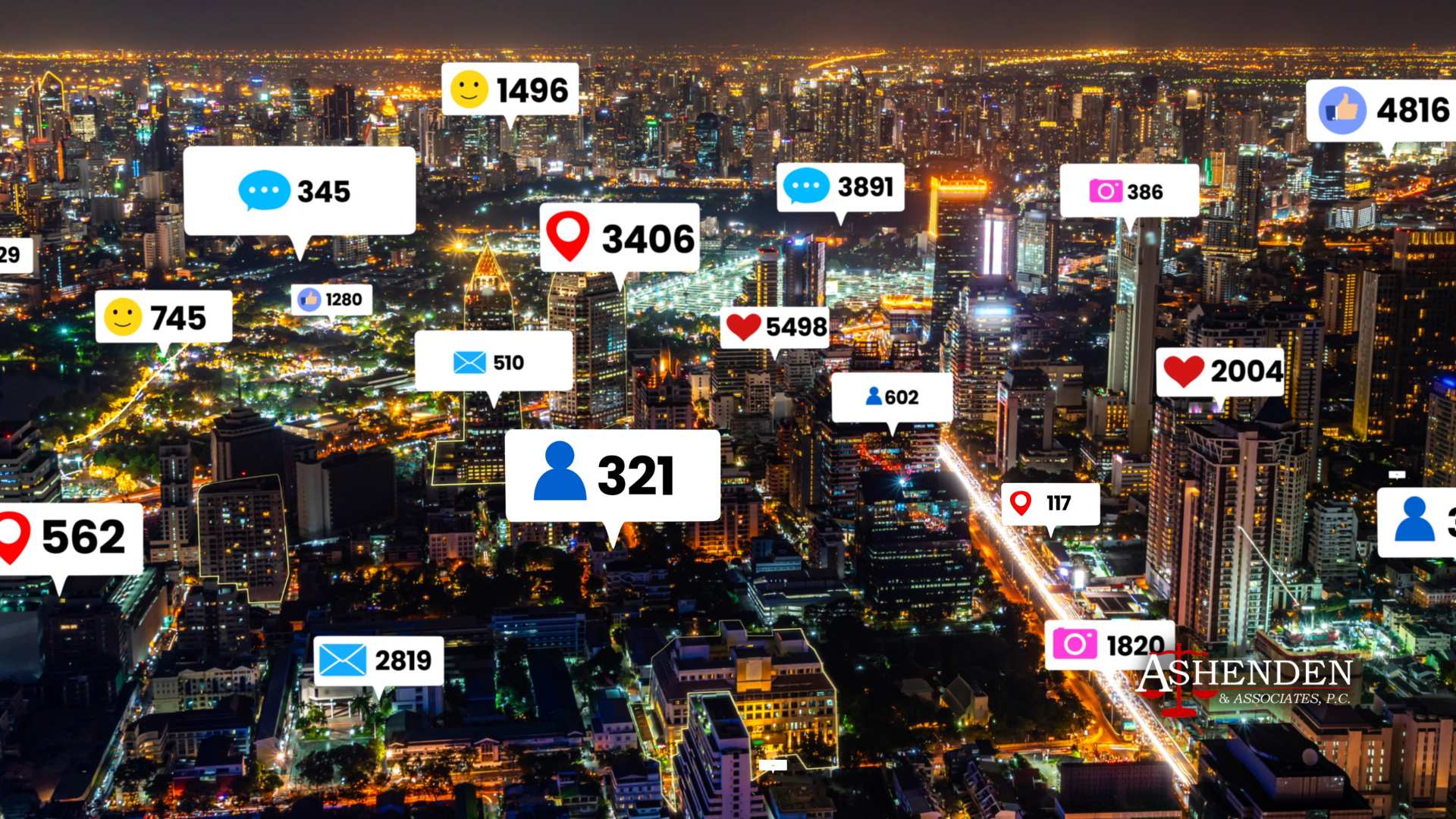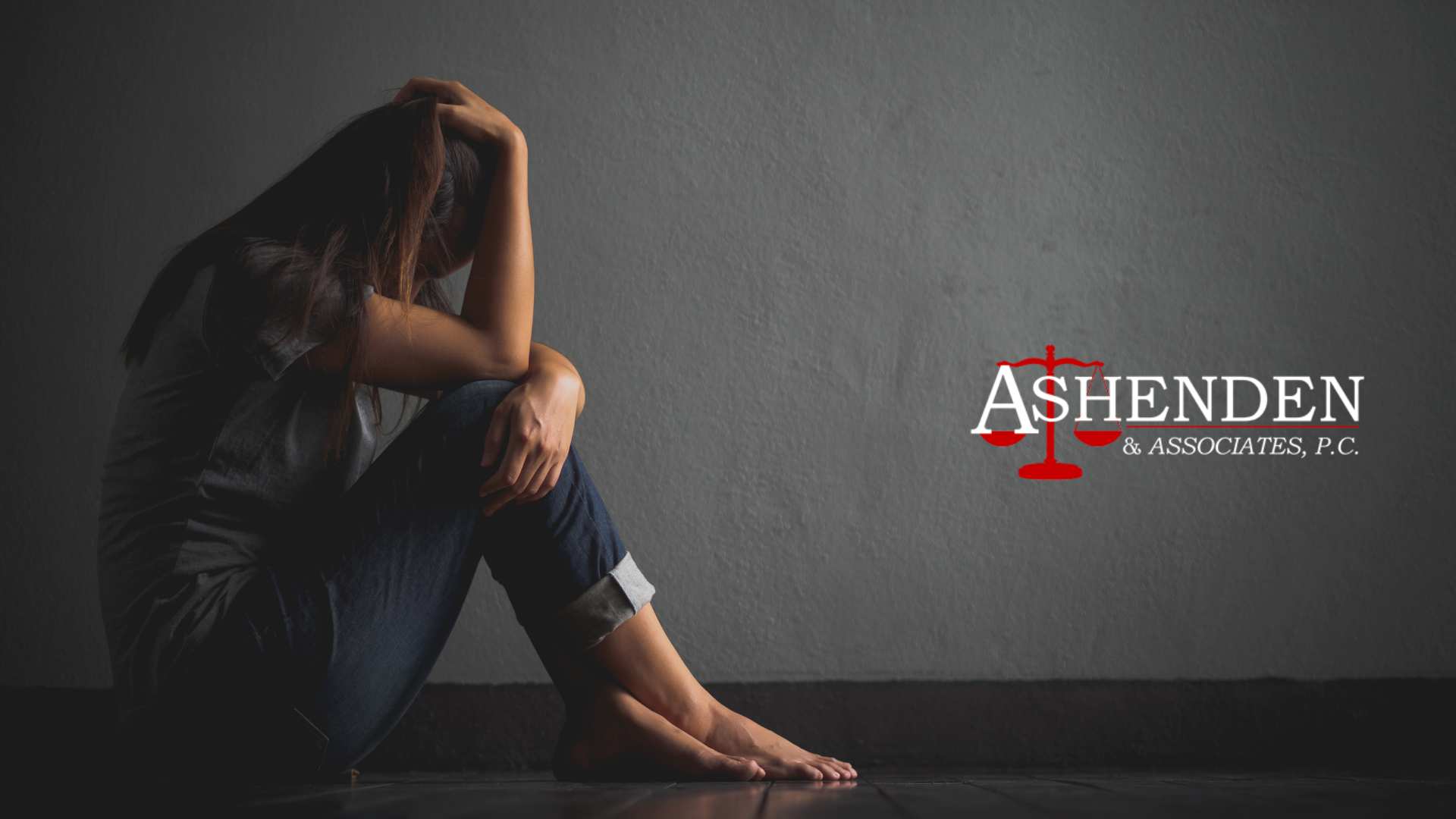We Go The Extra Distance For Our Clients
Practice Areas
Sandy Springs Social Media Lawsuit Attorney
Sandy Springs social media lawsuit attorneys can help victims of social media addiction and their families pursue justice against social media platforms. Our Sandy Springs social media addiction lawyers understand the profound negative mental health impact that major social media companies are having on minor children and teen users, from low self-esteem and eating disorders to suffering academic performance across many school districts.
As we gain more information on age-appropriate experiences, we’re seeing more legal claims against popular social media platforms, including Meta (Facebook and Instagram), ByteDance (TikTok), Snapchat, Google, YouTube, and other social media companies from parents whose children have suicidal thoughts, an eating disorder due to a negative body image, or are practicing self-harm. Current social media lawsuits allege that these social media companies intentionally designed their social media platforms to be addictive and have, therefore, failed to protect vulnerable users from the harmful effects of prolonged social media use.
The Sandy Springs personal injury attorneys at Ashenden & Associates recognize the mental health crisis and harm caused by Meta, TikTok, and other social media companies, and that’s why we stand ready to protect and advocate for young users involved in the ongoing social media addiction lawsuit.
The Sandy Springs social media attorneys at Ashenden & Associates are committed to advocating for the well-being and rights of those impacted by social media addiction. Call our legal team at 770-394-8909 to file your social media harm lawsuit.

What is Social Media Addiction?
Social media addiction is a legitimate addiction recognized by mental health professionals. More specifically, it’s a behavioral addiction characterized by excessive and compulsive use of social media platforms such as Facebook, Instagram, TikTok, Snapchat, Google, and YouTube. According to the Addiction Center, an estimated 5% to 10% of Americans have a social media addiction.
Why is Social Media Addictive?
Social media platforms like Facebook, Instagram, TikTok, Snapchat, Google, and YouTube use addictive algorithms and interactive features such as notifications, likes, and personalized feeds to captivate users for extended periods. These features trigger the release of dopamine, similar to gambling or drug addiction, perpetuating a cycle of posting, feedback, and continuous scrolling.
This mechanism not only fosters dependency by altering the brain’s dopamine centers but also leverages persuasive design techniques to heighten emotional investment, making it particularly challenging for young adults and teen users to disengage.
How Do You Know if You’re Addicted to Social Media?
Determining when social media use crosses into addiction is not strictly about the number of hours spent on these platforms but rather the impact this usage has on an individual’s life.
However, social media adolescent addiction is often characterized by spending anywhere between 5 to 9 hours daily on Meta platforms and other social media platforms. Considering most people are awake for 14 to 16 hours per day, this is a massive amount of time spent just scrolling through harmful content. According to the Journal of Social and Clinical Psychology, those who actively struggle with poor mental health and low self-esteem would benefit greatly from limiting their social media usage to only 30 minutes per day.
Social Media Addiction Symptoms

Social media adolescent addiction can manifest in various signs and behaviors, some of which are more easily identifiable than others. At Ashenden & Associates, we emphasize the importance of recognizing these signs to provide timely intervention and support. Key indicators include:
- Excessive Time Spent on Social Media Platforms: Time spent on social media platforms is more than other activities and typically interferes with sleep, homework, and social activities.
- Neglect of Personal Responsibilities: Ignoring schoolwork, chores, and other responsibilities due to social media use.
- Mood Changes Related to Social Media: Experiencing mood swings, irritability, low self-esteem, or anxiety when unable to access social media.
- Decreased Interest in Activities: Preferring virtual interactions over face-to-face engagements, leading to social withdrawal and isolation.
- Impact on Sleep Patterns: Disturbed sleep or insomnia due to late-night social media usage.
- Secrecy and Defensive Behavior: Being secretive about social media usage or becoming defensive when questioned about it.
Understanding these signs is crucial in identifying potential social media addiction in teens. It’s important to approach this matter with empathy and concern to adequately support teens, recognizing the significant role that social media plays in the lives of young people.
At our Sandy Springs personal injury law firm, we consider these factors critically when assessing the connection between social media and the youth mental health crisis, especially before filing social media addiction lawsuits.
Social Media Addiction Effects
The harm caused by social media addiction is multifaceted and can have lasting impacts on their mental and physical well-being. Our Sandy Springs social media lawyers highlight these concerns as part of our commitment to protecting the youth from the potential negligence of social media companies.
Key ways these popular social media platforms are causing harm include:
- Mental Health Issues: Increased risk of developing mental health problems such as depression, anxiety, and low self-esteem, often exacerbated by cyberbullying and unrealistic social comparison with others.
- Suicidal Ideation and Self-Harm: Young users with extreme social media addiction or those who suffer from cyberbullying can develop suicidal thoughts, suicidal ideation, or thoughts of self-harm. When young people’s mental health issues start getting worse, they may also start engaging in self-harm behaviors.
- Body Image Issues and Eating Disorders: Social media is essentially a constant highlight reel of perfect lives, perfect clothes, perfect bodies, etc. Constantly consuming unrealistic, perfectly curated third-party content can cause vulnerable users, such as teenage girls, to have body image issues due to social comparison. An eating disorder, such as anorexia, can take years to fully recover from. Eating disorders due to negative body image can not only destroy young people’s mental health but their physical health, as well.
- Impaired Social Skills: Young people may experience difficulty in developing and maintaining real-life social skills due to an overreliance on digital communication.
- Sleep Disturbances: Poor sleep quality and patterns, including insomnia, stemming from excessive nighttime screen time.
- Academic Performance: Decline in academic performance due to distraction and reduced time allocated to studies.
- Privacy and Safety Risks: Increased vulnerability to online predators, privacy breaches, and exposure to social media content that doesn’t provide age-appropriate experiences.
- Physical Health Concerns: A sedentary lifestyle associated with prolonged social media use can lead to obesity, poor posture, and vision problems, further damaging self-esteem. Meanwhile, teen users who develop eating disorders from their addiction may experience physical health problems such as hormonal imbalances, gastrointestinal issues, heart issues, a weakened immune system, brittle hair and nails, infertility, and more.
- Addictive Behaviors: Development of addictive behaviors that can set a precedent for other forms of addiction in later life, such as substance abuse.
As a law firm deeply invested in the welfare of the community, Ashenden & Associates prioritizes the need for legal accountability and safer online environments for our youth, challenging the practices of social media platforms that may contribute to the young mental health crisis.

Social Media Addiction Lawsuit Against Social Media Companies
There are multiple social media giants and tech companies currently involved in class action social media addiction lawsuits, including:
- Meta platforms: Facebook and Instagram
- Alphabet platforms: Google and Youtube
- ByteDance: TikTok
- Snap: Snapchat
- Social Media Platforms Our Social Media Lawyers Handle
Meta Class Action Lawsuit
The class action against Meta platforms, the parent company of Instagram and Facebook, alleges the algorithms used by Meta platforms are intentionally designed to foster dependency, particularly among teen girls and vulnerable demographics. Plaintiffs suing Meta argue that Meta’s practices violate consumer protection laws by prioritizing profit over the user’s mental health.
Facebook Class Action Lawsuit
This lawsuit challenges Facebook’s design and engagement strategies, claiming they lead to addictive behaviors that cause psychological distress and other negative outcomes. Legal arguments focus on the company’s failure to warn users about the addictive nature of its platform and the potential risks involved. The plaintiffs demand remedial actions, including modifications to Facebook’s algorithm and financial compensation for affected users.
Instagram Class Action Lawsuit
The class action against Instagram, one of the Meta platforms, centers on allegations that the platform’s addictive features disproportionately harm teenagers’ mental health. The social media addiction lawsuit accuses Instagram of negligence and failure to protect its younger user base from known risks associated with platform engagement. The parent company has even publicly stated that they believed underage users were lying about their age to join Instagram.
TikTok Class Action Lawsuit
TikTok teen addiction lawsuits claim the social media platform intentionally designed addictive content algorithms that specifically target children and teen girls, leading to harmful effects on their mental health and development. Plaintiffs argue that TikTok’s practices constitute a deliberate disregard for the welfare of its youngest users, violating consumer protection and federal laws.
Snapchat Lawsuit
The Snapchat lawsuit addresses the platform’s use of engaging but psychologically manipulative features, such as streaks and filters, which are alleged to encourage addictive usage patterns among users. Legal challenges focus on the implications of such features for youth mental health and psychological harm.

Social Media Addiction Lawsuits
You may be thinking: why are people suing social media companies for psychological harm and addiction?
The basis of the issue is that the social media giant, Meta, as well as other social media platforms, have committed product liability violations. In other words, these social media giants have caused emotional harm and addiction among young users by:
Designing defective apps;
Marketing apps without proper warnings or instructions for young people;
And acting negligently through marketing defective apps and failing to warn users.
Let’s break down each of these elements below.
Defective By Design
Meta platforms aren’t defective in that they’re malfunctioning. They’re defective in that they’re intentionally designed to:
- Lack boundaries that could prevent children and teens from seeing and engaging with harmful and exploitative content. Social platforms could easily create these boundaries if they wanted to.
- Allow children under the age of 13 to join the platform without parental consent despite the fact this is a clear violation of federal laws. Meta platforms specifically allow this to happen by failing to require identity authentication and age specifications.
- Evade parental authority by lacking parental control features.
- Promote specific types of harmful content in order to exploit young users.
- Expose children and teens to sex offenders due to the lack of reporting features included on the apps.
- Manipulate a young person’s reward system in their brain so that they will become addicted to the app and stay in a constant search for a dopamine rush. It can even be said that these tech companies exploit young, undeveloped minds, as they are more vulnerable to developing behavioral addictions and mental health issues.
- Lack some sort of notification system for parents when their children see or engage in harmful online content. It would be incredibly easy for Meta platforms to implement a notification system like this.
Failure to Warn
The next product liability element included in social media addiction lawsuits is that these apps have failed to warn users about the dangers associated with daily scrolling, including:
- Potentially developing a severe behavioral addiction.
- The risk of suffering from sleep deprivation and its mental and physical health effects.
- The lack of safety features, screen time reporting mechanisms, and parental controls.
Negligence
Finally, these social media lawsuits claim that social media companies, such as Meta, failed to protect users by providing a safe product. This is considered negligence, which in legal claims refers to the failure to take proper care in doing something in order to protect other people. Specific examples of negligence include:
- Not allowing independent testing and not conducting internal research on the effects its products may have on users.
- Failing to provide adequate warnings to both users and parents about the dangers associated with its products.
- Failing to investigate and restrict the use of its products by sexual predators.
- Failing to provide parents with specific features designed to protect their children from addiction, exploitation, and engagement with sexual predators.
Who Can File a Social Media Addiction Lawsuit?
So, who can join social media lawsuits and recover financial compensation for their suffering? To join the current class action lawsuit, you must meet these qualifications:
- Be born after the year 2000;
- Suffered clear symptoms of behavioral addiction, such as obsessions and compulsions regarding social media usage;
- Suffered physical or mental health issues such as self-harm, eating disorders, anxiety, depression, sleep disorders, suicidal ideation, etc.
As of November 2023, more than 140 school districts and 42 states plus the District of Columbia have filed social media lawsuits against companies like Meta. Many of the lawsuits filed have been consolidated into a single class action lawsuit MDL, which will take place in the Northern District of California.
Social Media Addiction Compensation

Class action lawsuits are different from other civil lawsuits in that anyone who meets the qualifications can join, and afterward, all they have to do is wait for a settlement and a compensation check. This settlement amount is often split evenly among all the plaintiffs, so it’s very common for the thousands of plaintiffs involved in a class action lawsuit only to receive a couple of hundred dollars apiece.
Types of compensation that may be available include:
- Medical Expenses: Compensation for current and future medical costs associated with treating social media addiction and its psychological effects, including therapy and counseling services.
- Lost Wages: Reimbursement for lost income due to reduced productivity or inability to work caused by the addiction.
- Pain and Suffering: Monetary compensation for the emotional distress, anxiety, depression, and other mental health issues resulting from social media addiction.
- Loss of Quality of Life: Compensation for the detrimental impact on the plaintiff’s overall quality of life, including strained relationships and diminished enjoyment of life.
- Legal Fees and Costs: Our firm works on a contingency fee basis: our fees are based on how much we are able to recover for you. Still, in some cases, you may be entitled to recover those attorney fees and get reimbursed for legal expenses incurred during the lawsuit.
Our team at Ashenden & Associates is committed to exploring all avenues of compensation for our clients, acknowledging the significant impact social media addiction can have on their lives. We aim to hold these companies accountable and secure the necessary compensation to aid in our clients’ recovery and rehabilitation.
How to File a Social Addiction Lawsuit
Filing a lawsuit against a social media platform involves several critical steps. At Ashenden & Associates, we guide our clients through this process with compassion. Here are the key steps to initiate a lawsuit:
- Consultation with a Lawyer: Begin by consulting with a legal expert at Ashenden & Associates. Our team will help you understand your rights and the feasibility of your case.
- Documentation of Addiction and Damages: Gather and document evidence of social media addiction and its impact on your life. This includes medical records, testimonies from therapists or psychologists, and any other relevant documentation.
- Determine the Legal Basis for the Claim: We will help identify the legal grounds for the lawsuit, such as negligence or breach of duty by the social media company.
- Class Action Consideration: Evaluate if your case aligns with an ongoing class action lawsuit against the social media company or if it’s more appropriate to file an individual lawsuit.
- Filing the Lawsuit: Once all information is gathered and a legal strategy is in place, we will file the lawsuit on your behalf, adhering to all procedural requirements.
- Navigating the Legal Process: Our legal team will guide you through every step of the legal process, from discovery and pre-trial motions to potential settlement negotiations or trial.
Ashenden & Associates is committed to ensuring that each step is handled with the utmost care and professionalism, aiming to achieve the best possible outcome for those impacted by social media addiction.
Sandy Springs Social Media Addition Lawsuit Attorneys
If you or a loved one is grappling with the negative mental health impact of social media addiction, it’s crucial to seek the right legal support. At Ashenden & Associates, our Sandy Springs social media lawyer team is dedicated to assisting you in navigating the complexities of these cases. Our approach is centered on understanding your unique situation, providing compassionate support, and vigorously advocating for your rights.
Don’t face the legal complexities of social media harm lawsuits alone. Contact Ashenden & Associates today at 770-394-8909 to schedule a free case review. Let us help you decide on the best course of action, and let us help you seek the justice you deserve for the harm caused by negligent tech companies.
